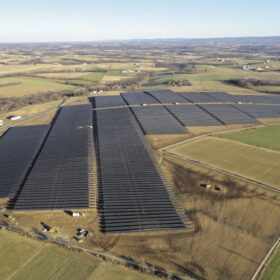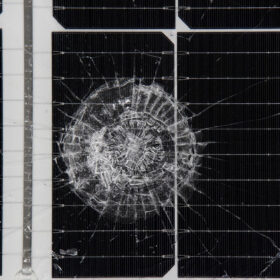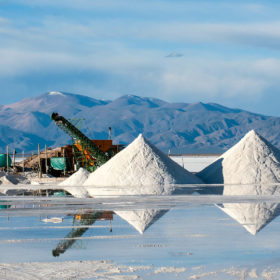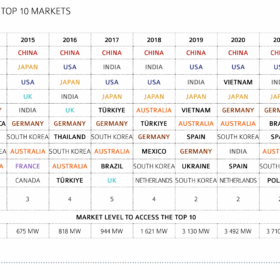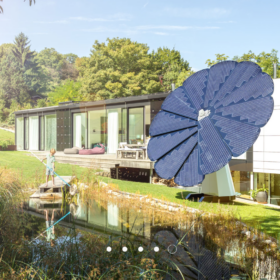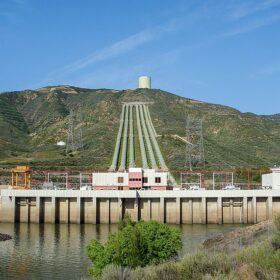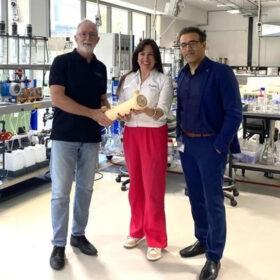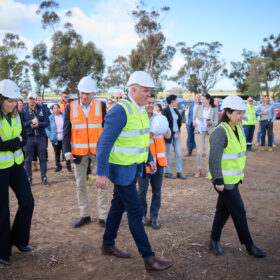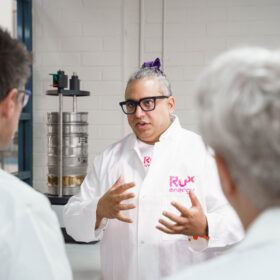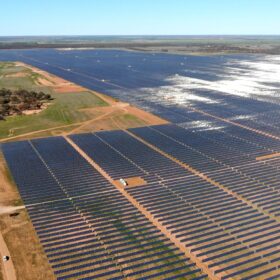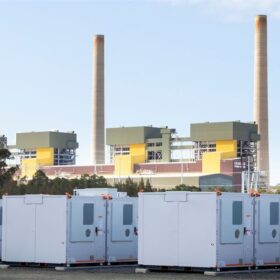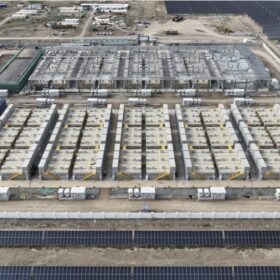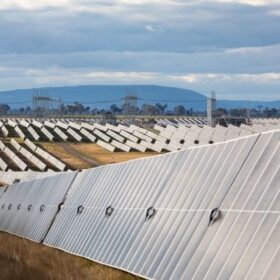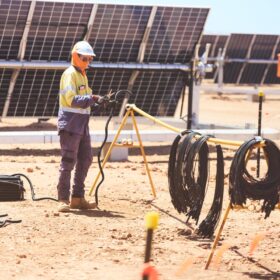BP completes takeover of Lightsource business
Deal for 50.03% of Lightsource BP leaves oil and gas giant with total control of renewables developer. Lightsource BP is expected to continue trading with a standalone operating model, retaining its independent brand.
Larger, thinner… and weaker?
With hailstorms in Australia and the United States severely damaging solar arrays – including “golf-ball sized” hail at the 350 MW Fighting Jays project in Texas in March 2024 – insurers are raising premiums and reducing or canceling hail coverage. Everoze Partner Simon Mason discusses the challenges the industry faces in minimising its hail risk exposure.
Australian researchers develop tech to recover lithium from saltwater
Researchers from Monash and the University of Queensland have developed a nanofiltration technology to extract lithium from low-grade saltwater brines with high magnesium content. “Our technology achieves 90 percent lithium recovery, nearly double the performance of traditional methods, while dramatically reducing the time required for extraction from years to mere weeks,” researcher Dr Zhikao Li said.
Australia’s flat solar market sees it dropped from global top 10
While Australia continues to be a revelatory solar market internationally, it lost its place in the top 10 solar installers globally in 2023, the IEA PVPS team reports. According to Renate Egan, Executive Director for the Australian Centre for Advanced Photovoltaics, it is the first time in 30 years Australia has dropped off that list. “What’s sad is that the rest of the world is now taking off and investing in solar and we’re falling behind,” she said at Melbourne’s All Energy on Thursday.
Nature inspires 2.5 kW Smartflower mobile solar system
New South Wales-headquartered critical power specialists Abundant Power Solutions has introduced the Austrian-made 2.5 kW Smartflower mobile solar system to Australia.
Election signals pumped hydro and renewable energy transition inevitable
Solar and wind have won the global energy race. They accounted for 80% of new global power capacity installed in 2023. In Australia, 99% of new capacity is wind or solar.
WA trio receives funding to pilot ‘transformational’ approach to critical mineral production
A Western Australian trio developing a novel ‘closed loop process’ for producing high purity alumina used in lithium-ion batteries has secured a $2.87 million grant from the Australian government.
Manilla Solar project, aiming to be Australia’s largest crowd-funded solar farm, seeks investors
The 4.6 MW Manilla Solar project in New South Wales is continuing its ambition of becoming Australia’s largest community-funded solar farm, inviting locals and national investors to contribute to its latest crowd raise, opening October 26.
Largest solar farm in Victoria begins construction
Engie has broken ground on its 250 MW Goorambat East solar farm, with Victorian minister for climate action, energy and resources, Lily D’Ambrosio, attending the event. The solar farm, Victoria’s largest under construction, is expected to be operational by 2026.
Australian company using nanomaterials for efficient, cheap hydrogen storage attracts federal funding
Australian company Rux Energy is commercialising technology that uses highly porous nanomaterials to coat tanks for hydrogen storage, claiming significant improvements to the cost, safety and efficiency of what remains a major industry barrier. It has secured funding in the Australian government’s latest round of research grants, and recently opened an office in Essex off the back of industry trials now underway in the UK.
